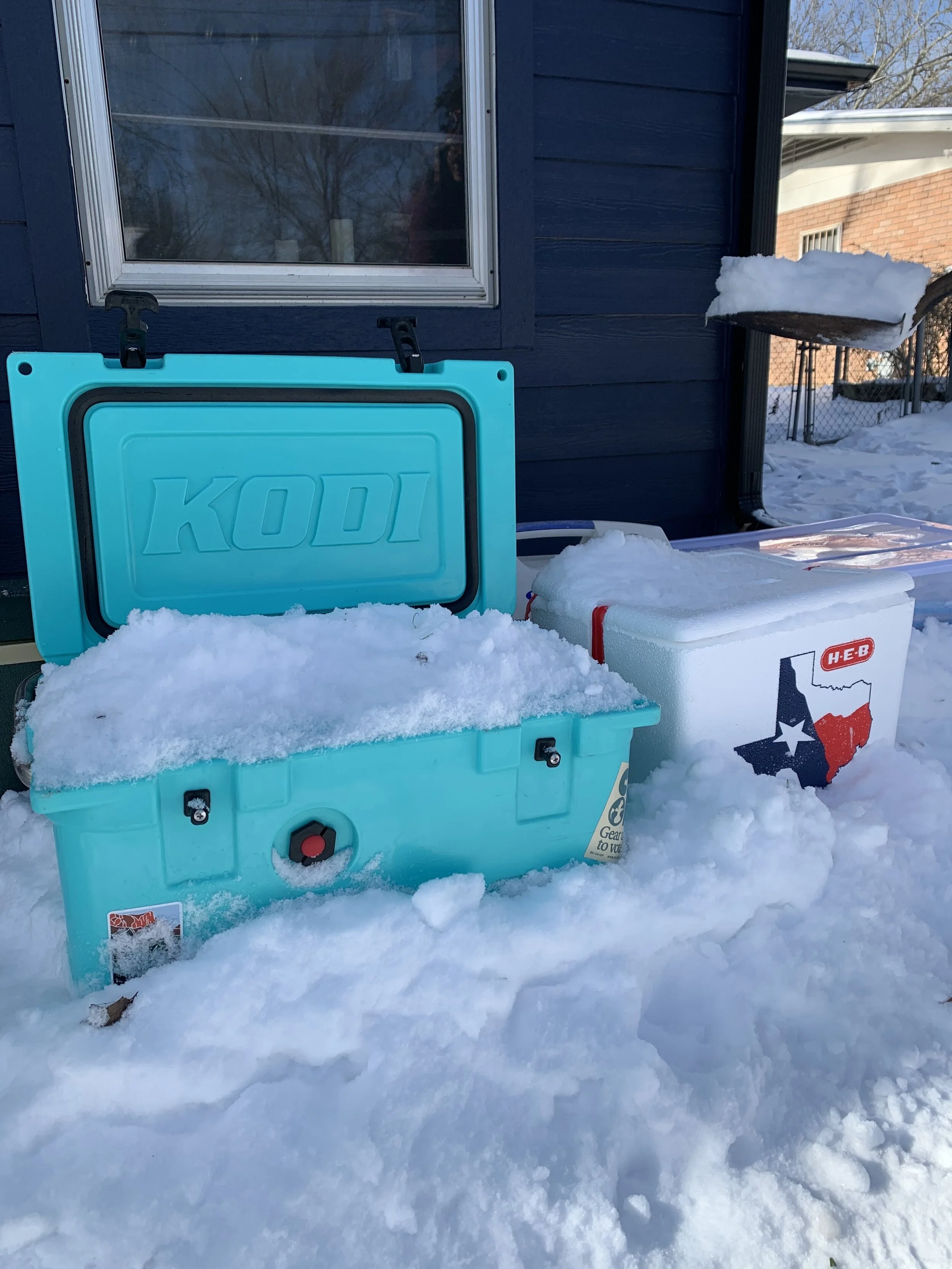Winter Storms as a researcher
If you are from Texas, then I’m sure you have clear memories of the 2021 winter storm that hit most of us, if you aren’t I’ll give a quick summary. February 14th, 2021 we had an… (I’m going to use the word we all hate after 2020) unprecedented winter storm rolling in. The day before it snowed 6-10 inches we had freezing rain, sleet, and plenty of icy roads. Which, while in other parts of the country is just a normal day in winter, in Texas this is highly unusual. What followed was power outages, burst pipes, and dangerous roads.
Lucky for my household we faired well, and so did most of our neighborhood, what I’m going to cover is how being a researcher has actually primed me for response to natural disasters, and how you can take these learnings and apply them to your emergency response plans. Let’s talk about my normal steps in a research project and how following.
1) Foresight
As a researcher, I spend part of my time looking toward the future for impending research needs, keeping a pulse on what unexpected projects might pop up and how I can be prepared for things that might come short notice.
a few days out from the storm, the forecast wasn’t looking good, when you see something on the horizon it’s time to start the planning process and determine how that’s going to affect your current workload/situation.
2)Planning
For a research project, this includes study plans and mostly my own brain dumps, for the winter storm it wasn’t much different.
Compile a list of needs or questions
What do we need if we lost power, water, other essential services? How can we help our elderly neighbors, what are we doing about my mother-in-law? etc…
What are high-priority items?
For my household, it was organizing help for our under-housed neighbors
It was making sure we had plenty of water and groceries
Retrieving my mother-in-law so that we could have her safe with us
Lastly, it was making sure our pipes were ready for a hard freeze
3) Execution
The part about having a plan that’s thorough, but also adaptable means you have more time to focus on the doing phase. When the storm hit, most of the scenarios I had thought out and planned for occurred.
We were able to hand out 50 bags of hand warmers, beanies, gloves, emergency blankets, bus passes, shelter info, etc to our under-housed neighbors the day before the freeze hit.
We lost power, almost immediately, but had lanterns, camp gear, radio etc out and ready. Our 3 days without power while not pleasant was not unbearable.
We were unable to drive anywhere after it snowed which meant having my mother-in-law safe and plenty of food meant we were able to have peace of mind and also feed our elderly neighbors and check in on them.
We insulated our exterior faucets, drained the sprinklers, and had interior faucets on drip.
4) Adapt
With most research projects you run into unexpected issues, customers not showing up, tech not working, people not fully engaged. Being adaptable and finding ways to make things work is honestly mostly what my job is. The same occurred with my winter storm plan.
We were told not to expect anything more than rolling blackouts and had planned to keep items in the fridge… well 10 hours later still no power meant moving things into cooler/plastic tubs in the snow.
All of my customer interviews had to be postponed which meant trying to contact customers during the storm to cancel calls and let them know we’d be sending gift cards for them.
5) Review
One of the things I always do post-study/project is a review of what went well, what I’d change in the future, and really any other feedback from stakeholders or teammates.
It was difficult to get updates and charge phones with no power for 3 days
Solution: Emergency radio and solar power banks were ordered
We were unable to drive for several days since we had a small sedan.
When the Mazda finally gave out we upgraded to a 4X4 so we wouldn’t have to worry about getting stuck in the future.
We took a lot of things away from this experience but were so thankful to have gotten away unscathed and safe. In a future post, I’ll talk more about how this inspired me to join Texas Search and Rescue as a volunteer and how we plan for future events.
Stay safe and stay prepared y’all!



